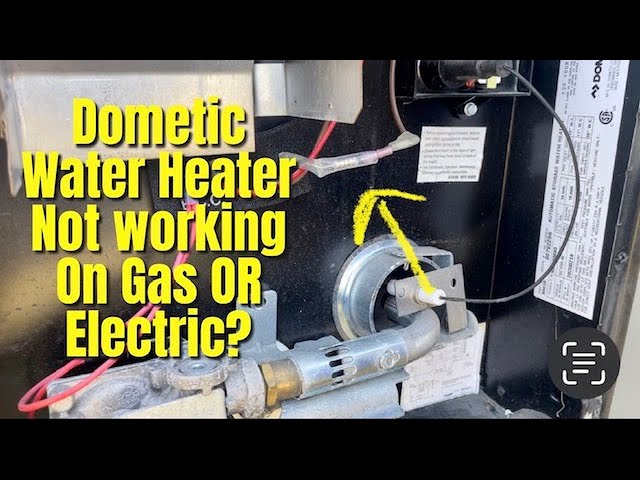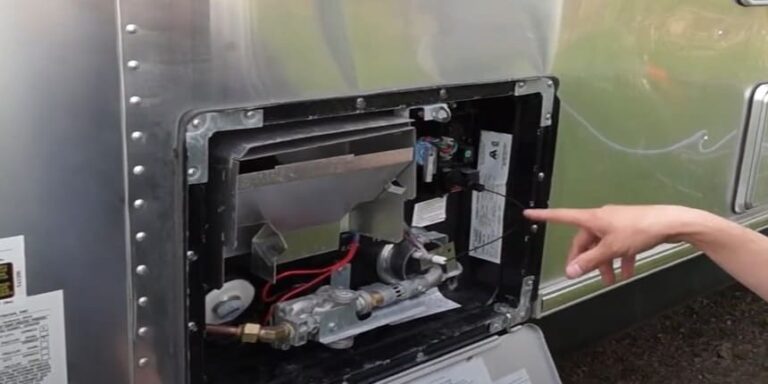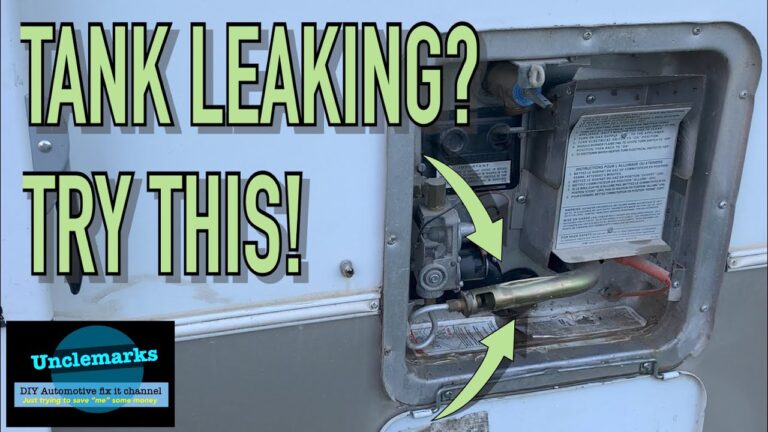Picture this: you’re parked at a stunning campsite, surrounded by nature’s beauty. You’ve spent the day exploring and now all you want is a warm shower to unwind.
But suddenly, your RV’s water heater isn’t working on electric. Frustrating, isn’t it? You’re not alone. Many RV enthusiasts face this issue, and it can turn a dream trip into a stressful situation. In this guide, we’ll help you troubleshoot and fix your RV water heater, so you can get back to enjoying your adventure.
Ready to reclaim your hot water and peace of mind? Let’s dive in!
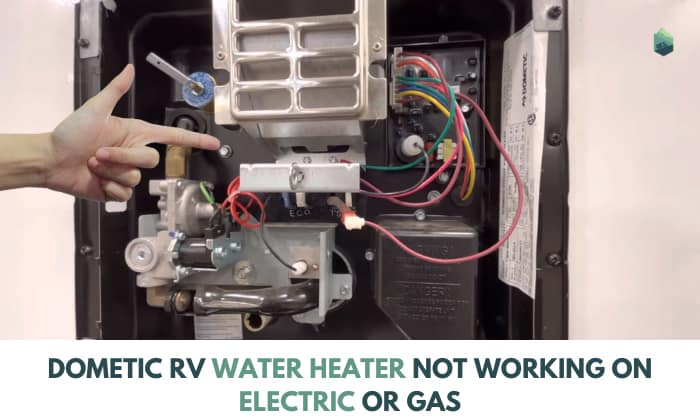
Credit: www.camipa.org
Common Causes Of Rv Water Heater Issues
Having trouble with your RV water heater not working on electric? Understanding common causes can help you solve the issue quickly. RV water heaters can develop problems over time. Identifying these problems can save you from cold showers.
Faulty Heating Element
A faulty heating element is a frequent cause of issues. The heating element warms the water. Over time, it can wear out or become damaged. If your water heater isn’t heating, check the element first.
Tripped Circuit Breaker
A tripped circuit breaker is another common problem. Circuit breakers protect your RV from electrical overloads. If the breaker trips, your heater won’t work. Inspect the breaker panel to ensure nothing has tripped.
Defective Thermostat
A defective thermostat can cause water heater issues. The thermostat regulates water temperature. If it’s not working, the water won’t heat properly. Test the thermostat to ensure it’s functioning correctly.
Wiring Problems
Wiring problems can also affect your water heater. Loose or damaged wires can disrupt electrical flow. Inspect the wiring for any signs of wear. Secure or replace any loose connections.
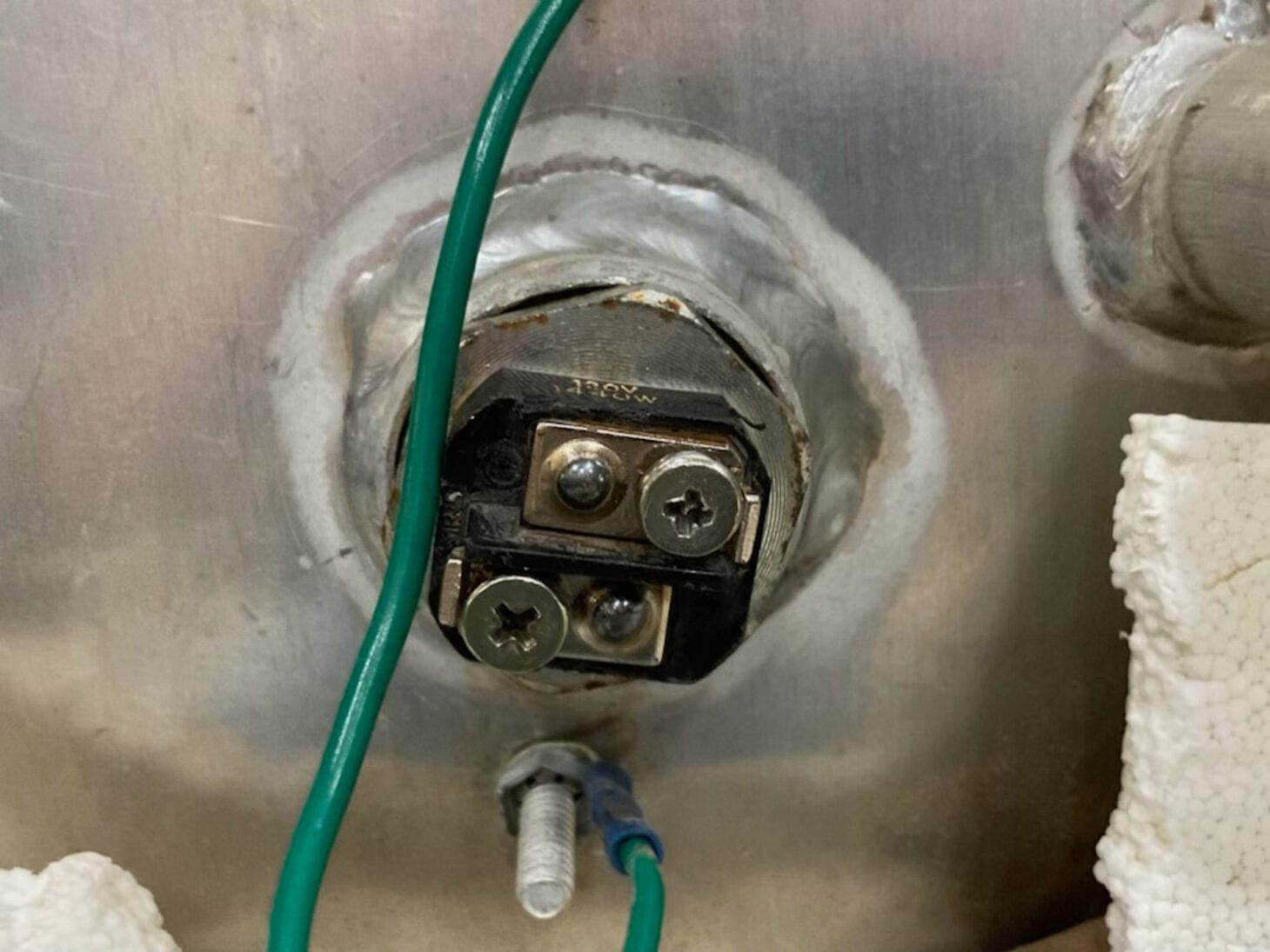
Credit: roadtrippers.com
Checking The Power Supply
Having an RV water heater not working on electric can be a real hassle, especially when you’re out on the road and in need of a hot shower. Before jumping to conclusions about replacing your water heater, it’s crucial to check the power supply.
A simple issue with the power can often be the culprit. By inspecting the power cord, testing the outlet voltage, and resetting the circuit breaker, you can potentially save time and money. Let’s dive into these steps to ensure your water heater gets back to work.
Inspecting The Power Cord
The power cord is your water heater’s lifeline to electricity. If it’s damaged or not properly connected, your heater won’t work. Start by checking the cord for any visible signs of wear and tear.
Look for frayed wires or any signs of burning. Ensure it’s securely plugged into the outlet. Sometimes, a gentle wiggle can reveal if there’s a loose connection. Remember, a power cord that appears fine can still be faulty internally, so don’t hesitate to replace it if your heater remains unresponsive.
Testing The Outlet Voltage
Once you’ve inspected the power cord, move on to the outlet. You need to confirm it’s supplying the correct voltage. Using a simple voltage tester can be a game-changer here. Plug it into the outlet and check if the voltage matches what your water heater requires.
A low or high voltage can cause malfunction. If your tester shows discrepancies, it might be the outlet itself that’s faulty. Have you ever plugged in a device only to find it didn’t work because of a faulty outlet?
Resetting The Circuit Breaker
Sometimes, the problem lies in the circuit breaker. It’s possible that it has tripped, cutting off power to your water heater. Head over to your RV’s breaker panel and locate the switch for the water heater. If it’s flipped to the off position, simply reset it by switching it back to on.
Even if the breaker seems fine, flipping it off and then back on can sometimes reset electrical issues. This simple act can be the solution, just like how a computer restart solves myriad problems.
By systematically checking these aspects of your RV’s power supply, you can often pinpoint and resolve why your water heater isn’t working on electric. Remember, these troubleshooting steps are not just for experts; they’re manageable tasks that you can handle yourself.
So, the next time your water heater acts up, you’ll be equipped with practical steps to tackle the issue head-on.
Assessing The Heating Element
Checking the heating element is vital when an RV water heater doesn’t work on electric power. A faulty element can prevent water from heating. Ensure connections are tight and corrosion-free for optimal performance.
Assessing the heating element in your RV water heater can feel daunting, especially when you’re on the road and need hot water. But don’t worry, with a few simple tools and some basic know-how, you can determine if the heating element is the culprit behind your cold showers. If you’ve ever faced the frustration of a non-functional RV water heater, you’ll understand the importance of a reliable heating element.
Testing For Continuity
Begin by ensuring the power is off to avoid any electrical hazards. You’ll need a multimeter to test for continuity. Remove the access panel to get to the heating element. Disconnect the wires connected to the element and set your multimeter to the continuity setting.
Touch the multimeter probes to the terminals of the heating element. If the multimeter beeps or shows a reading, your element is functioning. If it doesn’t, it’s time to consider a replacement.
Replacing A Burnt-out Element
Once you’ve confirmed the element is burnt out, replacing it is the next step. Purchase a replacement that matches your RV model. Drain the water heater by opening the drain valve and release any pressure using the pressure relief valve. Unscrew and remove the faulty element using an element wrench.
Install the new heating element by screwing it into the water heater. Reconnect the wires and ensure they are secure. Turn the power back on and check if the water heats up. Have you ever had an unexpected cold shower because your RV water heater malfunctioned? Share your experiences or questions in the comments below to help others tackle similar issues.
Evaluating The Thermostat
Your RV water heater isn’t working on electric, and you’re wondering where to start. Evaluating the thermostat might be your answer. This small but mighty component regulates the temperature, ensuring you have hot water when you need it.
A malfunctioning thermostat can disrupt your entire water heating system, so checking its functionality is crucial. Let’s dive into how you can assess and potentially fix this issue.
Testing Thermostat Functionality
Begin with a visual inspection. Look for signs of damage or wear, such as corrosion or loose wires. These can be telltale signs that your thermostat isn’t functioning properly.
Use a multimeter to test the thermostat’s continuity. Set your multimeter to the ohms setting and connect the probes to the thermostat terminals. If the reading shows zero or infinity, it’s time for a replacement.
Have you checked the power supply? Sometimes, a tripped breaker could be the culprit. Ensure power is reaching the thermostat before concluding it’s faulty.
Adjusting Thermostat Settings
Have you ever thought about adjusting the thermostat settings? A simple tweak could resolve your heating issues. Check the current setting; it might be set too low, preventing the water from heating adequately.
Adjust the thermostat to a higher temperature. Be cautious, though—setting it too high can be dangerous and lead to scalding. Aim for a safe, comfortable range around 120°F to 140°F.
Consider whether fluctuating ambient temperatures are affecting your RV’s water heater. In colder climates, adjusting the thermostat slightly can compensate for the chilly environment.
Have you ever had a moment when you realized a simple fix was all it took? Evaluating and adjusting your RV’s thermostat could be that moment. What’s your next step if this doesn’t resolve the issue?
Inspecting Wiring Connections
Inspecting wiring connections is crucial when the RV water heater fails to work on electric power. Loose or corroded connections might be the culprit, requiring careful examination and tightening to restore functionality. Regular checks help prevent long-term issues and ensure a reliable hot water supply.
When your RV water heater stops working on electric mode, it can be a frustrating experience, especially when you’re on the road and in need of hot water. One common issue could be the wiring connections.
Inspecting wiring connections is a crucial step to ensure everything is in order. A thorough inspection can help you pinpoint the problem and get you back to enjoying a hot shower.
Checking For Loose Wires
Begin by turning off all power sources to your RV to ensure your safety. Once you’re sure the power is off, access the wiring compartment of your water heater. Look for any wires that appear to be loose or disconnected.
Loose wires can be the culprit behind many electrical issues. Check each wire and gently tug to see if it’s firmly connected. If you find any loose wires, reconnect them securely. Have you considered that a simple loose wire might be the reason for your cold showers? It’s easy to overlook, yet fixing it can restore your heater’s functionality in no time.
Repairing Damaged Wiring
Damaged wires can be another reason your water heater isn’t working. Examine the wires closely for any signs of wear or damage, such as fraying or cuts. These can occur due to age, wear, or even pests.
If you spot any damaged wires, it may be necessary to replace or repair them. Use electrical tape for minor frays or consider replacing the wire altogether for more severe damage. Have you ever thought about keeping a small repair kit handy for such situations? It can be a lifesaver when you’re miles away from the nearest repair shop.
Regularly checking and maintaining your RV’s wiring can save you a lot of trouble down the road. It’s not just about getting your water heater running again; it’s about peace of mind knowing everything is in top shape. By keeping a watchful eye on your wiring, you ensure a smoother and more comfortable journey.
Preventive Maintenance Tips
To keep your RV water heater working smoothly, regular maintenance is key. Ignoring small issues can lead to bigger problems. Preventive care ensures the heater remains efficient and reliable. Here are some tips to help you keep your water heater in top shape.
Regular Inspection Routine
Check the water heater monthly. Look for leaks or rust. Ensure all wires are secure and undamaged. Test the heater’s electric function. Make sure it heats water properly. Listen for unusual noises. Address any issues immediately. Regular checks prevent major repairs.
Using Protective Covers
Protective covers shield your water heater from dust and debris. They help avoid unnecessary wear. Covers also keep moisture away. Choose a cover that fits well. Make sure it is durable and waterproof. A good cover extends the heater’s life.
Winterizing The Water Heater
Prepare your water heater for cold weather. Drain the water completely. Use an RV antifreeze solution. This prevents freezing and damage. Check seals and insulate exposed parts. Winterizing protects the heater during harsh temperatures.
When To Consult A Professional
RV water heaters can be tricky. Sometimes, the problem isn’t obvious. If your RV water heater stops working on electric, you might need a professional. Not all issues are easy to fix alone. It’s important to know when to seek help.
DIY fixes can be tempting. Yet, they might not always solve the problem. A professional ensures safety and efficiency. Let’s explore some scenarios where consulting a professional is wise.
Identifying Complex Issues
Some problems are more complex than they appear. Electrical issues can be dangerous. A professional can identify hidden problems. They have the right tools and knowledge. They can pinpoint issues quickly. This saves time and potential damage.
If you notice burnt wires or a strange smell, seek help. These signs indicate serious issues. Professionals can address them safely. Attempting to fix these yourself can lead to accidents.
Locating Qualified Technicians
Finding a qualified technician is crucial. Look for certified RV service centers. They employ trained professionals. Check reviews and ask for recommendations. Ensure they have experience with RVs.
Local RV clubs can be helpful. They might know trusted technicians. Always verify their credentials. This ensures you receive quality service. A good technician can save you future headaches.

Credit: www.youtube.com
Frequently Asked Questions
Why Is My Rv Water Heater Not Heating?
If your RV water heater isn’t heating, check the power supply first. Ensure the circuit breaker is not tripped. Inspect the thermostat settings and reset if necessary.
Faulty heating elements or a blown fuse can also be culprits. Regular maintenance helps prevent these issues.
How Do I Reset My Rv Water Heater?
To reset your RV water heater, locate the reset button on the unit. Press and hold it for a few seconds. Ensure the power supply is on and check for any tripped breakers.
If the problem persists, consult the manual or seek professional assistance.
What Causes Rv Water Heater Fuse To Blow?
A blown fuse in your RV water heater can be caused by electrical surges. Overloading the circuit or a short circuit are common causes.
Regularly check for loose wires or damaged components. Replacing the fuse might solve the issue but investigate the root cause to prevent recurrence.
How Can I Maintain My Rv Water Heater?
Regular maintenance of your RV water heater includes checking for leaks and inspecting connections. Clean the tank periodically to prevent sediment buildup. Test the heating element and thermostat regularly.
Ensure all electrical connections are secure. This routine helps extend the life of your heater.
Conclusion
Fixing an RV water heater can be simple with the right steps. Check power sources first. A faulty thermostat might be the cause. Also, inspect the heating element. Regular maintenance can prevent future issues. Always prioritize safety when dealing with electrical appliances.
Consult a professional if you feel unsure. Understanding these basics can save time and stress. Keep your RV’s water heater functioning efficiently. Enjoy warm showers on your travels. With these tips, you can handle minor repairs yourself. Stay prepared and informed for a smooth RV adventure.

